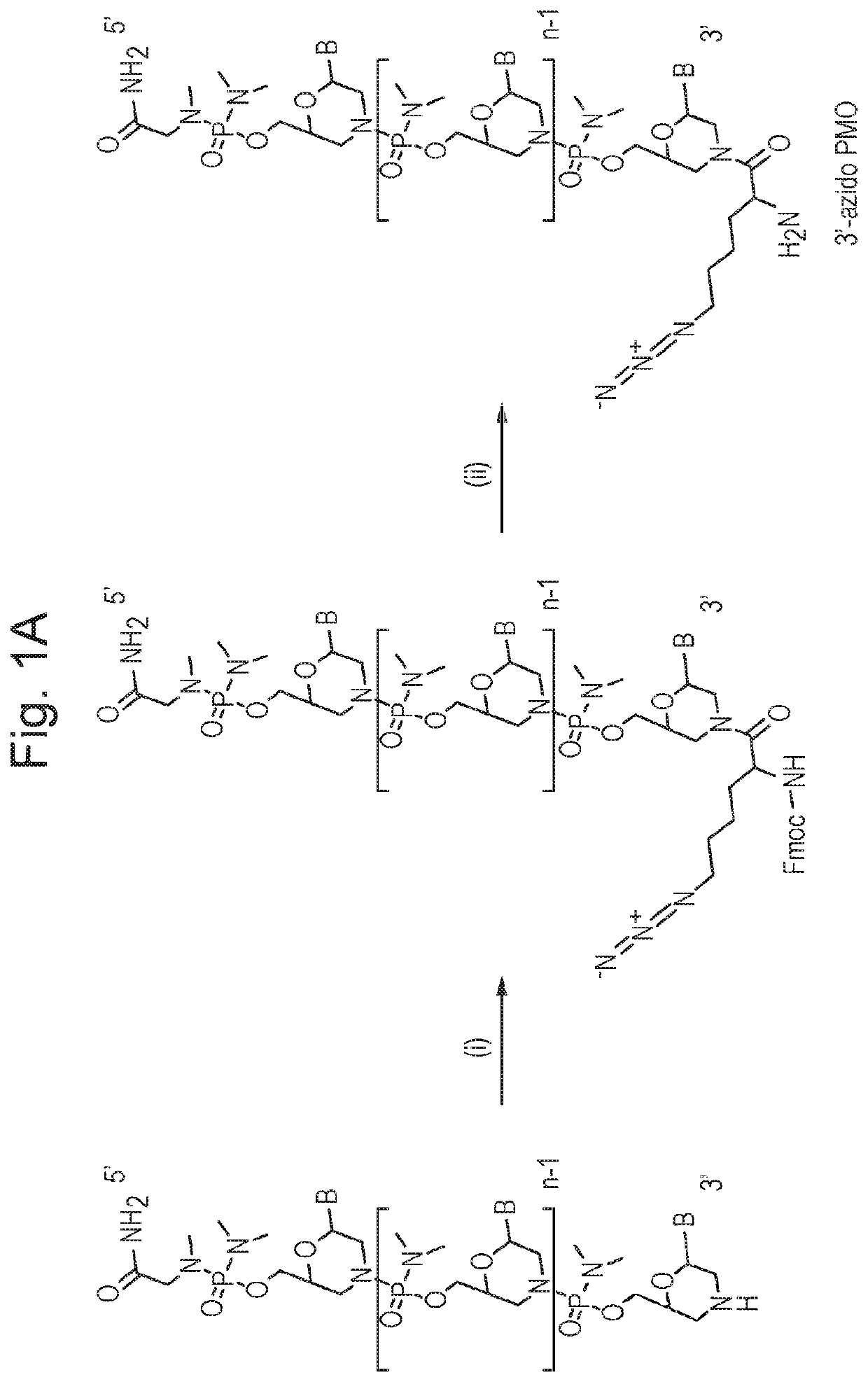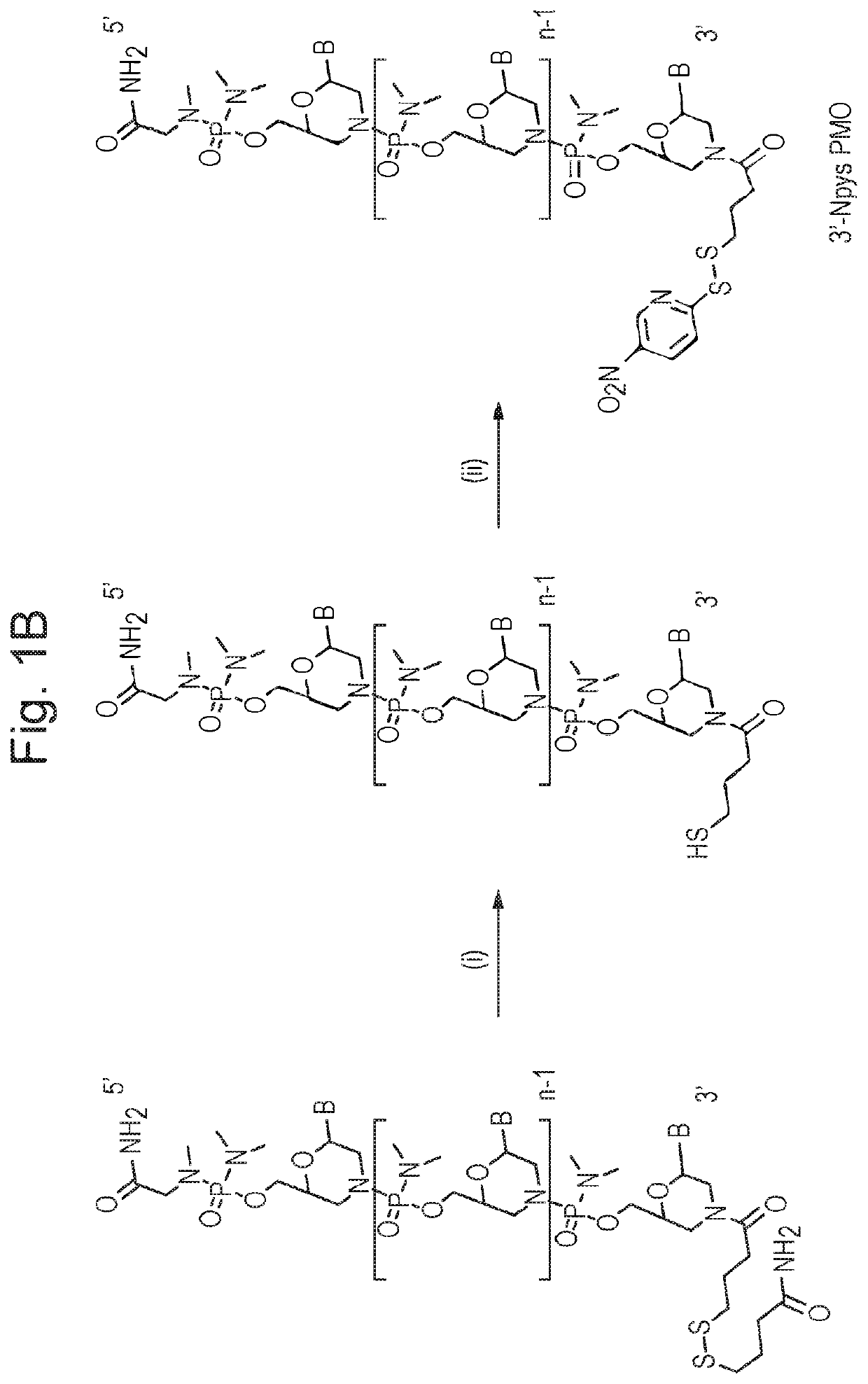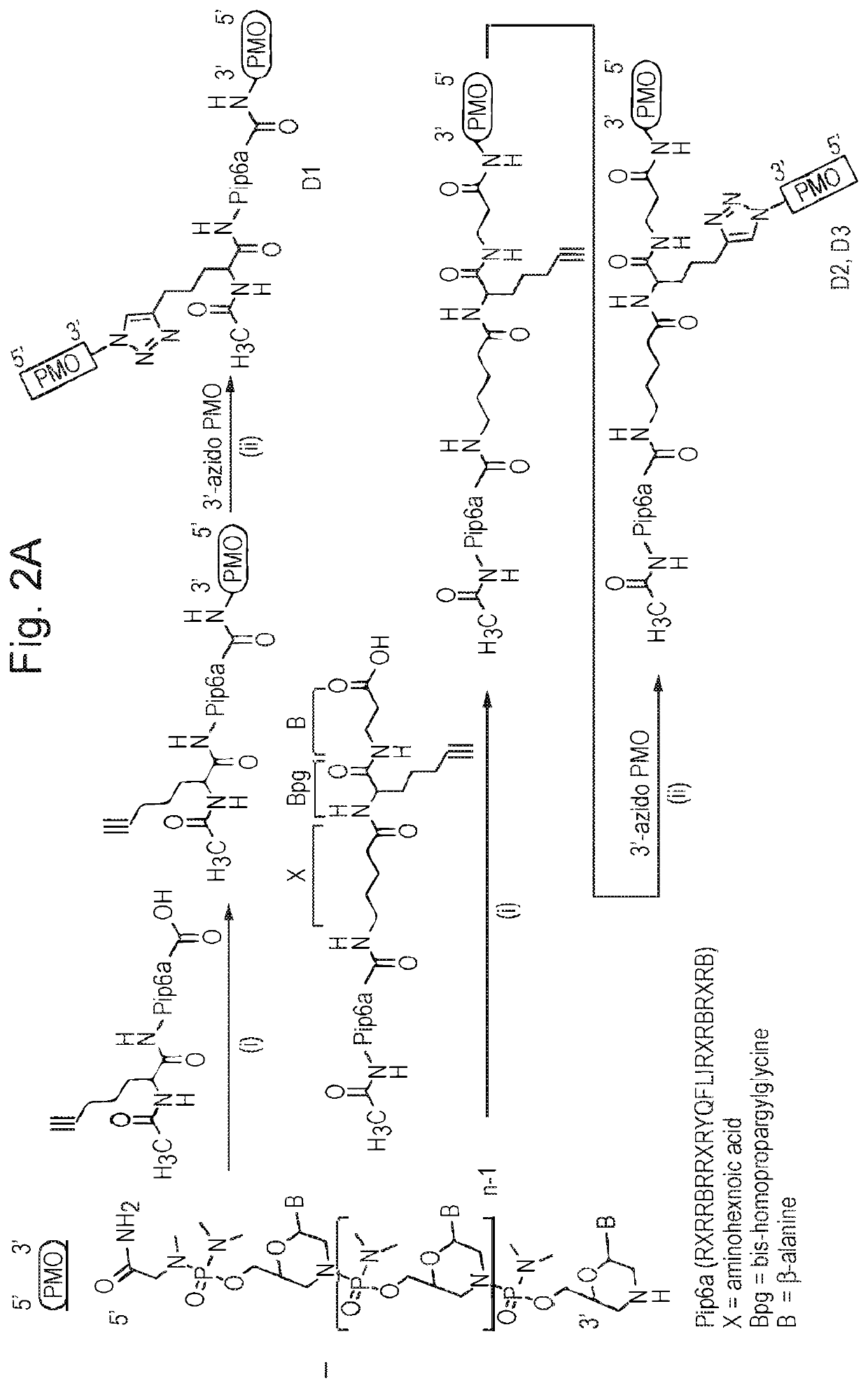Cell penetrating molecule
a cell and molecule technology, applied in the field of cell penetrating molecules, can solve the problems of poor delivery to and/or uptake into, limiting the therapeutic effect of agents, and limiting the level of agents,
- Summary
- Abstract
- Description
- Claims
- Application Information
AI Technical Summary
Benefits of technology
Problems solved by technology
Method used
Image
Examples
example 1
[0120]Preliminary data (not shown) was obtained where two copies of an identical exon-skipping morpholino oligonucleotide (targeting exon 23 of murine dystrophin) are coupled together via a disulfide bond and linked to a CPP. The Pip5e CPP was used. This has the sequence RXRRBRRXRILFQYRXRBRXRB (SEQ ID NO: 16); wherein X is 6-aminohexanoic acid (Ahx) and B is beta-Alanine. The first oligo was functionalised with a free S—S—R group at the 3′, in order to generate a free thiol group following a reduction step, before coupling of the 5′ end of the morpholino oligo prefurnished with an amino linker to the C-terminus of the CPP by standard amide linkage. The second oligo, functionalised at the 3′ end with an Npys group, was then added under conditions suitable for disulphide bond formation between the 3′ ends of each oligo.
[0121]Exon skipping activity in mdx muscle cells for the bi-coupled molecule was found not to have doubled but was improved relative to that for a the same CPP coupled ...
example 2
[0123]Starting with the PIP6a CPP (SEQ ID NO: 1) different chemistries for the attachment of two oligonucleotides were tested. Three different conjugation chemistries, including amide, disulfide and triazole bonds were utilised to allow orthogonal conjugation. The oligonucleotides used were an exon-skipping PMO targeting exon 23 of the murine dystrophin (Dmd) gene to correct the mdx genotype, and an exon-skipping PMO targeting exon 5 of the Acvr2b gene so as to produce an internally deleted protein that lacks the crucial trans-membrane domains. Thus, the two cargo molecules are not identical and do not target the same or closely-related sequences. However, the same attachment techniques apply equally to identical cargo molecules, or cargo molecules specific for the same or closely-related target sequences.
[0124]Several different bi-specific conjugate designs were investigated whereby the two PMOs were joined either at one end of the Pip6a peptide or with one PMO at either N- or C-te...
PUM
| Property | Measurement | Unit |
|---|---|---|
| structure | aaaaa | aaaaa |
| length | aaaaa | aaaaa |
| width | aaaaa | aaaaa |
Abstract
Description
Claims
Application Information
 Login to View More
Login to View More - R&D
- Intellectual Property
- Life Sciences
- Materials
- Tech Scout
- Unparalleled Data Quality
- Higher Quality Content
- 60% Fewer Hallucinations
Browse by: Latest US Patents, China's latest patents, Technical Efficacy Thesaurus, Application Domain, Technology Topic, Popular Technical Reports.
© 2025 PatSnap. All rights reserved.Legal|Privacy policy|Modern Slavery Act Transparency Statement|Sitemap|About US| Contact US: help@patsnap.com



